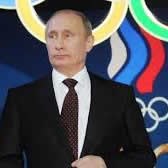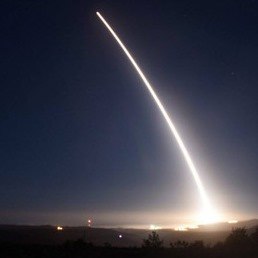(Co-authored with Sufian Zhemukhov) Russia’s recent prominence in the Olympics and Democratic Party hacking scandals reminds us of Putin’s 2007 complaint that since the death of Mahatma Gandhi, he has no one to talk to. Paraphrasing Gandhi, Putin could say that if you can’t change yourself, change the world.
Recently, he has applied this logic to the Olympics and the international system.
Putin lives in a world where there are few consequences for his actions. He invaded Georgia in 2008, just as preparations for the Sochi Olympics were getting under way, and barely suffered any penalty. Putin suddenly disappeared in the middle of the 2014 Olympics and plotted, with a group of ex-KGB generals, the invasion into Ukraine on the morning of the closing ceremony. Following that aggression, he ran into a wall for the first time, when Western countries applied sanctions against him and excluded Russia from the G7. But there were no consequences at home as his apparent popularity rose to 82 percent, according to Russian opinion polls. Rather than changing policies, he fine-tunes his approach and continues pushing in the same direction.
The latest Olympic doping scandal shows again that the Russian leader faces few consequences. The World Anti-Doping Agency report demonstrated “beyond a reasonable doubt” that the Russian state led a doping program that touched all of Russia’s athletes, calling into question the integrity of the games themselves. Two Russian whistleblowers disclosed the whole scheme and WADA evidence demonstrated that what they had reported was true.
The International Olympic Committee, however, refused to ban the Russian team from the Rio games, despite the recommendation of the anti-doping association to do just that. The only athlete that the IOC officially banned from the Rio Olympics was the whistle blower Yulia Stepanova, again in spite of the fact that the International Association of Athletics Federation had authorized her to compete. Meanwhile, Putin announced that he had jailed the sister of the other whistleblower, Grigory Rodchenkov, the former Moscow anti-doping laboratory chief.
Although the IOC decision opens the door to penalize some Russian athletes, it takes no action against Russia’s state-sponsored doping system. Why did the IOC fail to hold Russia accountable? The answer is that international organizations that are not backed up by state authority cannot resist Russian power and influence.
Putin achieved all of his goals with the Sochi Olympics. The high level of bureaucratic corruption that prevails in Russia raised the cost of the Olympics from the $12 billion promised in the initial bid to the $55 billion final price tag. The main beneficiaries were Putin’s cronies who won lucrative state contracts or borrowed money from state banks and never returned it. Under the pretext of protecting the games against terrorist attack, Russia acquired significant new military and intelligence capabilities. Concentrating its resources at the games helped Russia use its forces for the invasion of Georgia and Ukraine and the annexation of Crimea. Putin used the games as an excuse to further quash civil society and develop ever more sophisticated surveillance techniques, which continue to be used even though the games are long over.
The Sochi Olympics were immediately forgotten after the closing ceremony as the world focused on the Russian invasion of Ukraine. The doping scandal now has returned international attention to the games themselves and the nature of the Putin regime, which was reflected in the games.
While Putin pretends to play by the rules, in fact he plays only one game and with the only instrument he knows. Russia’s formal institutions are in fact hollow shells, and every Kremlin action is designed as a special operation. The Russian Olympic Committee reported to its international counterpart, but actually had no power. Olympstroy, a state corporation set up after Russia won the games, actually oversaw the Olympic preparations with little accountability to the IOC. (Olympstroy later became transformed into an agency to facilitate Russia’s occupation of Crimea.) As we now know from the McLaren report, the Russian Anti-Doping Agency was used by the FSB to cover up the use of illegal performance enhancers by Russian athletes.
Contemporary history shows that no international organization can resist post-Soviet Russia’s corrupting influence. So far, only the combined effort of EU and U.S. sanctions has been able to check Russia’s aggressive moves to undermine Western institutions and alliances.
But even these alliances are shaking. Russia’s intelligence services are able to utilize critical resources that the West itself produces, such as Wikileaks, to stir trouble in Western societies. As the Russian hackers’ ability to infiltrate the DNC’s servers shows, the West’s competitors are able to take advantage of weaknesses in our system to promote their interests at the cost of fair play and democracy.
Robert Orttung and Sufian Zhemukhov are authors of forthcoming book, Putin’s Olympics: The Sochi Games and the Evolution of Twenty-First Century Russia.











